Introduction: Retail investors has undergone a massive transformation in recent years, with the rise of social media and online communities influencing stock market trends like never before. One of the most fascinating phenomena in this space is the emergence of meme stocks—shares of companies that skyrocket in value due to viral online attention rather than traditional financial fundamentals. In this blog, we’ll explore retail investing, the impact of meme stocks, and the risks and rewards associated with this new investment landscape.
Table of Contents
What is Retail Investing?
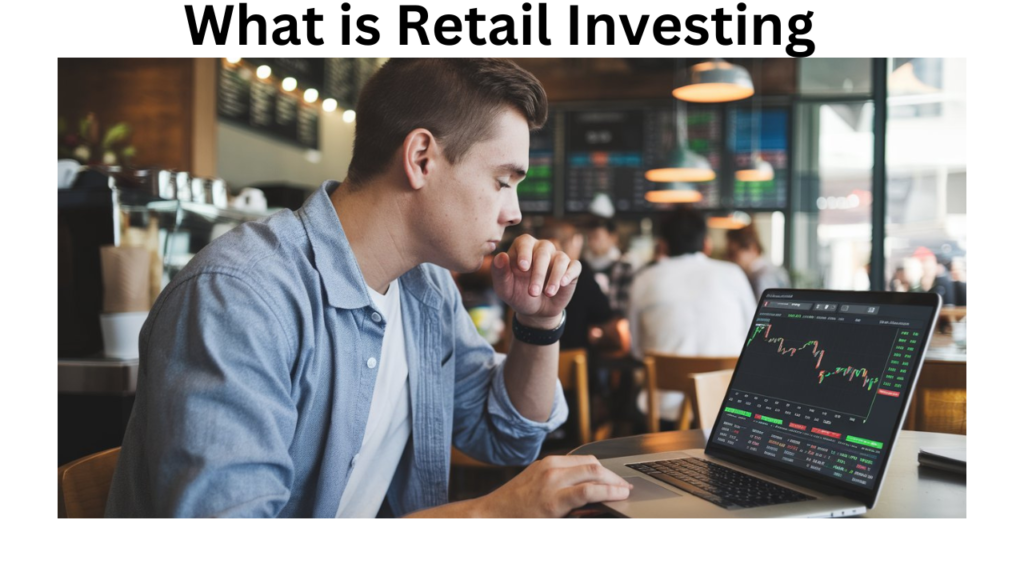
Retail investing refers to individual investors buying and selling securities through brokerage accounts, rather than institutional investors like hedge funds or mutual funds. With the advent of commission-free trading platforms such as Robinhood, E-Trade, and WeBull, retail participation in stock markets has soared.
Key characteristics of retail investors include:
- Typically investing with smaller capital compared to institutional investors.
- Relying on online resources, social media, and personal research for decision-making.
- Engaging in short-term trading, often driven by trends, sentiment, and hype.
The democratization of investing has empowered individuals to challenge traditional market players, leading to movements such as the meme stock revolution.
Understanding Meme Stocks
A meme stock refers to a company’s shares that gain popularity primarily through online forums and social media discussions rather than traditional valuation metrics. Platforms like Reddit (r/wallstreetbets), Twitter (now X), Discord, and Facebook play a significant role in their promotion.
The Origins of Meme Stocks
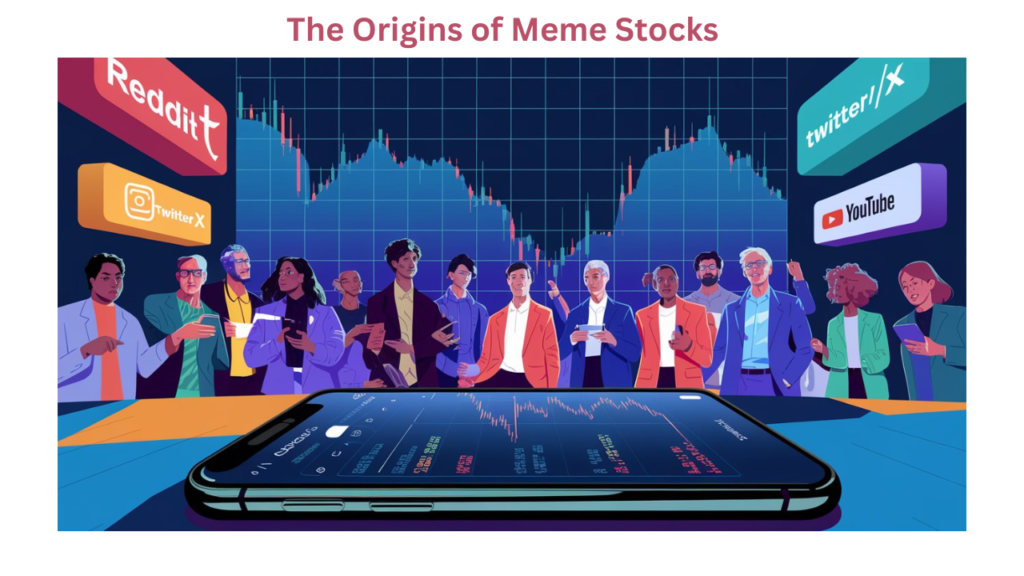
The meme stock phenomenon took off in 2021, with the dramatic rise of GameStop (GME). The movement was largely driven by retail investors on Reddit who noticed that hedge funds had heavily shorted GameStop. A collective buying spree led to a short squeeze, forcing institutional investors to buy back shares at higher prices, further driving the stock upwards.
Other notable meme stocks include:
- AMC Entertainment (AMC) – The struggling movie theater chain saw its stock skyrocket due to retail investor support.
- Bed Bath & Beyond (BBBY) – A once-declining retailer that surged after social media hype.
- BlackBerry (BB) – A nostalgic tech brand revived by meme stock traders.
The Mechanism Behind Meme Stocks often follow a predictable cycle:
- Discovery & Hype: Social media users identify a stock, create memes, and spread excitement.
- Mass Buying: Retail investors pile in, causing a rapid price increase.
- Short Squeeze: If institutional investors have shorted the stock, they are forced to buy back at a loss, fueling further price surges.
- Peak & Sell-off: Eventually, profit-taking and reality set in, leading to a steep decline in stock price.
The Risks and Rewards of Meme Stocks
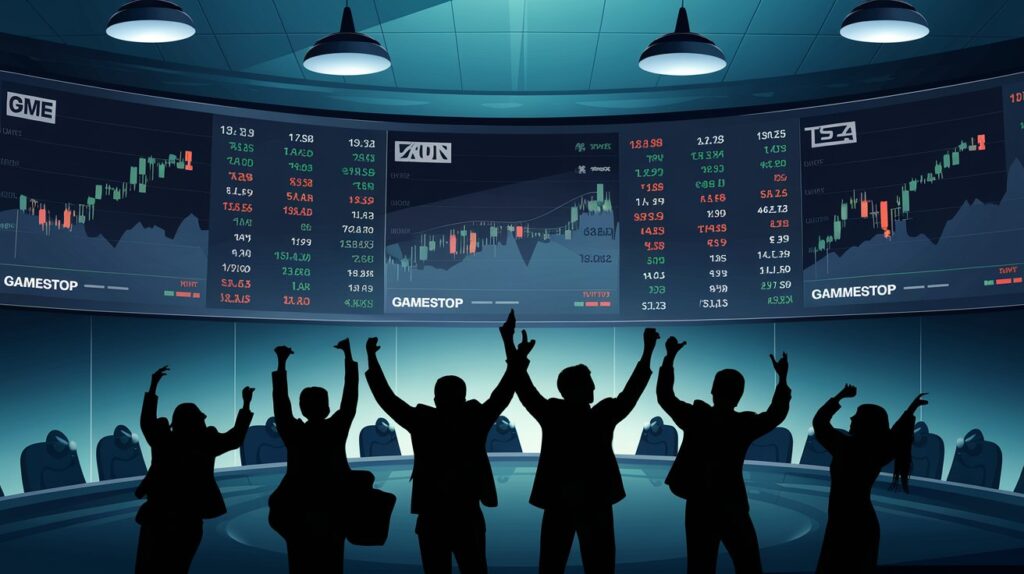
Potential Rewards:
- Quick Profits: Sharp price movements can yield massive short-term gains.
- Market Disruption: Retail investors have proven they can challenge institutional players.
- Community Engagement: Meme stock trading fosters a sense of unity among retail traders.
Risks:
- Extreme Volatility: Prices can crash as quickly as they rise.
- Speculation Over Fundamentals: Meme stocks often lack strong financial backing.
- Emotional Investing: The Fear of Missing Out (**FOMO**) can lead to impulsive decisions.
- Regulatory Risks: Increased scrutiny from financial authorities may impact trading activity.
The Future of Meme Stocks and Retail Investing
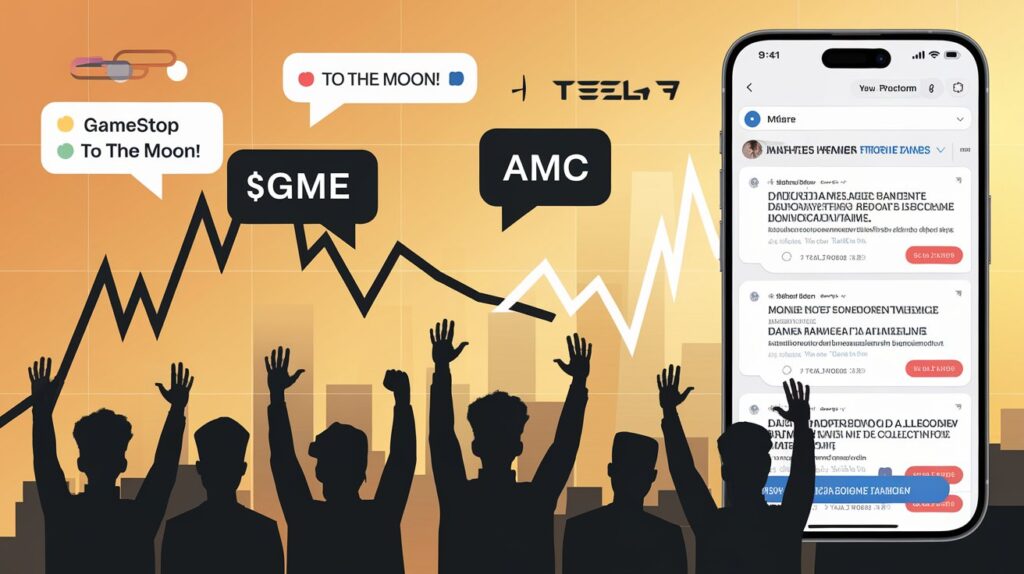
While the meme stock craze has cooled down since its peak in 2021, its influence on investing is undeniable. Platforms like Reddit continue to be hotbeds for retail investor discussions, and meme stock surges can still happen, as seen with the GameStop revival in 2024.
Moreover, the rise of fractional investing, cryptocurrency trading, and commission-free platforms ensures that retail investing will remain a dominant force in the financial markets. The key for investors is to remain informed, manage risks, and avoid falling into the trap of hype-driven decision-making.
Conclusion
Meme stocks have reshaped retail investing, proving that the power of collective action can influence financial markets. While they offer exciting opportunities, they also come with significant risks. Whether you’re an experienced investor or a newcomer, understanding the dynamics of retail investing and meme stocks can help you navigate this evolving landscape wisely.
Would you dive into meme stocks, or do you prefer traditional investment strategies? Let us know in the comments!
Author: allykazmi
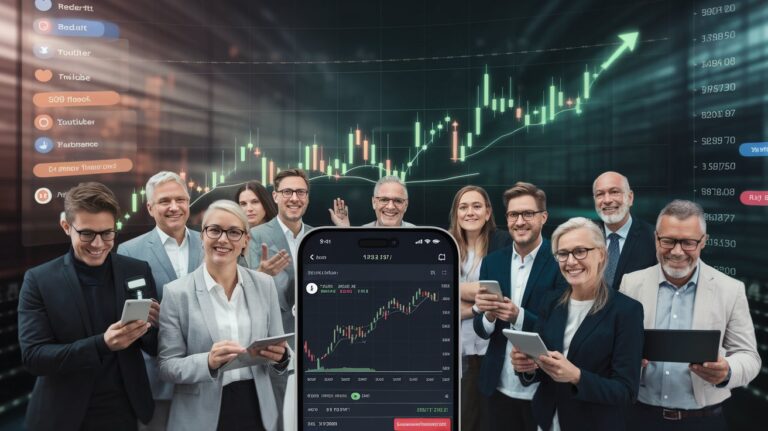
“I appreciate the detailed explanation, very helpful!”